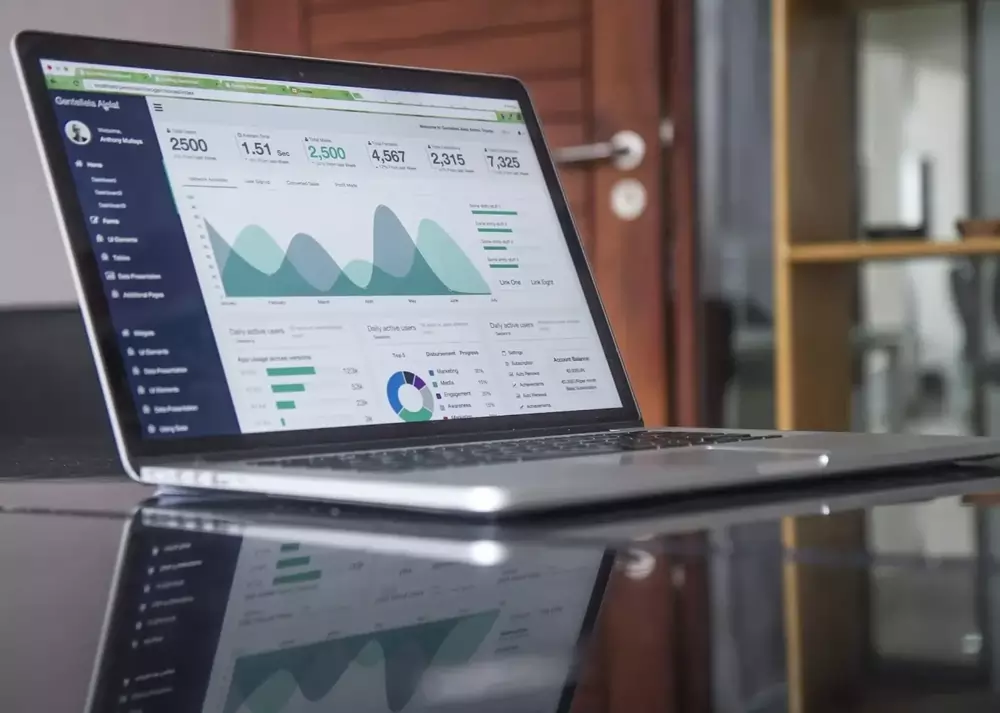5 Easy Ways to Get Your Financial Life Back on Track: Tips for Men Over 40
It can be tough to get your financial life back on track when you're in your 40s and 50s. You may have taken a few wrong turns along the way, or maybe the economy has just been tough on you. Your expenses tend to go up, while your income often remains the same.
You feel overwhelmed and spend countless nights with little or no sleep because you don't know where to start. If so, don't worry - you're not alone. Millions of men find themselves in the same situation every year.
However, that doesn't mean you can't take action and get your financial life back on track. In this blog post, we'll discuss some easy ways to start getting your finances under control!
How to regain control over your financials
If you're like most men, you want to be in control of your finances. You want to know where your money is going, and you want to make sure that you're making the best possible decisions with your money.
Unfortunately, many men lose control of their finances because they don't have a plan. They don't why their personal finances derail so easily and their financial stability affects every other aspect of their lives.
Achieve financial stability means having enough money to not worry about money on a day-to-day basis.

Take a look at your expenses and make changes where necessary.
One of the best ways to get your financial life back on track is to take a close look at your expenses. Many men in their 40s and 50s find that they are spending way more money than they need to on things like eating out, entertainment, and vacations, leaving them with more days at the end of the month than money. If this sounds like you, it's time to make some changes.
I know the process is painful. Some people might even prefer to go to the dentist instead of facing the reality of their finances! But you must determine your current financial situation!
Here are some steps that will facilitate the process:
Gather the information of all your debts and financial obligations, including interest rates. For that purpose, request a free copy of your credit report from each of the three big credit report agencies—Experian, TransUnion, and Equifax—once a year at annualcreditreport.com. Another easy way to keep track of your credit history is to access a free service like Credit Karma, which has a phone app.
Include all your obligations
Child support/alimony.
Divorce is tough enough, but not making ends meet because of child support is even worse.
Mortgage/Rent.
This is usually the largest financial obligation for most people. If you're struggling to make your mortgage or rent payments, you are not alone. Foreclosure and eviction processes are among the worst experiences a person can go through.
Car loan/Lease.
How much is still left on the car loan? Include how much you own, your car payment, and your car maintenance as well. Once you have all this information in front of you, it's time to make some tough decisions.
You might need to sell your car and downgrade to a less expensive model. The key is to find areas to cut costs without significantly impacting your quality of life.
Credit card debt.
How much do you own in credit cards, and how much are you paying each month? Make sure you include the balances and minimum payments. If you have high-interest debt, like credit cards, you must take them under control. Make a note of due dates. You must avoid late fees.
Start by paying off the credit card with the lowest balance. This will give you a psychological boost, motivating you to keep going.
Consider transferring all your balances to a new credit card that gives you the option of paying with no interest for a promotional time of several months.
Student loans.
According to the Student Loan Debt Statistics Report, reported in the Education Data Initiative, the average student loan borrower owes approximately $37,000.
If you're one of the millions of Americans struggling to pay back student loans, there are a few things you can do to get your financial life back on track.
First, make sure you're on the right repayment plan. There are several repayment options available, and you want to have one that you will comply with.
Medical bills.
According to Deb.com, 50% of Americans have an unpaid medical bill. And 57% of those own more than $1,000. These numbers don't consider those who have used their credit card as a payment method for those expenses.
Even with health insurance, medical bills can be a substantial financial burden. If you're struggling to pay your medical bills, there are a few things you can do.
First, contact the hospital or doctor's office and arrange a payment plan. They will often work with you to set up a monthly payment that is more affordable for you. See if you can get the bill reduced or deferred.
Second, if the bill has been sent to a collection agency, you must contact them and work out a payment plan. Don't avoid the situation. It will only get worse.
Remember, collection agencies can and will report outstanding balances, affecting your credit report.
Personal loans.
How much do you owe on personal loans? This also includes money that has been borrowed from friends and family members.
If you can't afford to make the monthly payments, you need to contact the lender and work out a payment plan. You can often negotiate a lower interest rate or even a longer repayment period.
Remember, you must keep up with the payments, or else you will damage your credit score and end up in collections.
Monthly bills, including living expenses and utility bills.
This would include your phone, internet, and cable bill, your car insurance, and home insurance.
You need to take a close look at your personal finances and see where you can cut back.
One way to do this is to get rid of your cable TV and downsize your internet service. This can save you a significant amount of money each month.
Once you have all of this information in front of you, it will be easier to see where you can make changes. You don't have to make them all at once, but start somewhere.
How much can you realistically afford to pay each month on all your debts and financial obligations?
Reduce your spending and track your expenses
If you plan to spend more on your finances, you should be aware of the amount of money you need to save. It is surprisingly a challenging task, and it requires disciplinConsiderider a bank account integration app that keeps you informed about your money purchases in adv to simplify this process. You could also use SquareUp scheduling tools to make it easier to know when you have big bills to pay.

Make a financial plan - establishing short-term and long-term financial goals
Create an Emergency Fund
After diagnosing your financial situation, the first goal must be to create an emergency fund. This will help you cover unexpected expenses without going into debt. Once you have an emergency fund in place, you can start working on your other financial goals, such as saving for retirement or paying off debt.
According to a survey realized by Bankrate.com in July 2021,
- 25% of Americans (1 in 4 Americans) have no emergency fund at all.
- Only 39 percent of Americans (almost 4 in 10 Americans) surveyed say they could cover an unexpected expense of $1,000.
- And, more than 50% of all Americans have less than three months' worth of expenses set aside for emergencies.
If you don't have enough money to cover at least three months of your monthly expenses, your number one priority must be to start saving! But, don't worry. It doesn't have to be all at once. Start with tiny goals and increment those goals as you are reaching them.
Financial planning doesn't have to be complicated
If this is the first time you are trying to put your personal finances under control, make sure you don't set unrealistic goals. For example, propose yourself save your first $100. Sometimes, even such an amount seems impossible. Then, start even smaller. Save your first $20, and repeat the process five times!
Them, rinse, and repeat until you have put aside your first $500. Once you have achieved such a goal, repeat it twice. By saving in your emergency fund your first $1,000, you have become part of an elite of only 39% of all Americans who can afford an emergency of up to $1,000.
Celebrate your financial success.
But don't stop there! It is now time to save enough money to cover a whole month's worth of your expenses.
And guess what? Rinse and repeat until you have at least three months' worth of expenses.
Yes, I know what you are thinking. I dare to guess that you think that this goal might seem impossible to achieve right now. That is why so important to automate your finances. More on that on the next step.
Set up different savings accounts
One of the best ways to save money is to have it automatically transferred from your paycheck into a savings account. Preferably in a credit union. That way, you won't even miss it!
A Credit union account is an excellent way to set aside extra money to pay for vacations, your Christmas expenses, etc.
Automate your finances, so you have less to worry about each month.
In the book, I Will Teach You to Be Rich, the author, Ramit Sethi teach us the importance of automizing your finances. And in the book Profit First, where Mike Michalowicz teaches us how and why is so important to pay ourselves first and establish different accounts to manage your money. I highly recommend reading both books.
But, in the meantime, let me give you a brief summary of what you need to do.

Save Money
Set up a monthly amount to save every single month. Make sure you are automatically transferring a fixed percentage of your income.
Yes, I know that it sounds counterintuitive and even crazy to set aside a fixed amount before even knowing how to cover all your recurrent expenses.
But, paying yourself first, you guarantee that you do it each and every month. And that is how you regain control of your finances.
I don't want to sound repetitive, but your emergency fund is for emergencies only. AN emergency is not a dinner with family or our loved ones. It is not an offer during Black Fridays. It is not that new gadget you always wanted to have.
An emergency is something that puts your life or the life of a family member at risk. For example, an accident, an illness, an unexpected job loss. Or an unexpected repair of your vehicle or home.
That is why is so important to have your emergency fund in a savings account, separate from your regular saving account and checking account.

Increase retirement savings
Retirement can be expensive, so you should probably start saving at the time you start working. When is the best next time? Right now!
The amount of savings depends upon the age at which you begin. In your 20s you should contribute 10% to 15% of your income while people saving in their 40s could contribute up to 35% towards the retiree's pension. The sooner people begin saving, the more money they have.

Stay disciplined - avoid overspending, save regularly, and invest for the future.
When it comes to spending money, I think that you should enjoy your life today, but responsibly. Avoid using credit card debt to pay bills.
The key is that you need to start budgeting. But, your budget is more than establishing your cash flow. It is about building wealth.
Your expenses, including your fixed costs, are just one part of the equation. If you want to gain control of your finances, your monthly budget needs to reflect your financial goals.
Make sure that you include your current income, all additional income, and any additional money you receive. Any additional income should go toward your retirement plan for greater peace.
Monitor your credit going forward
Remember, having an excellent credit score is essential to managing money. It ensures that your loan is eligible to be lent at low rates. It will be helpful for buying a property/car or for a loan application. Lower interest payments are more convenient and reduce the amount you pay. Please see my credit history on Creditsnet. When you're trying to monitor or repair your credit score, try the free card.

Avoid financial burdens
Your financial goals must reflect variable expenses, fixed expenses, your debt repayment structure, your savings should prelate your spending habits.
Stay positive and don't dwell on past mistakes.
It's easy to get down on yourself when you feel like you're not making progress. But, remember that everyone makes mistakes - it's how you learn from them and move on that counts.
Focus on the positive things you've accomplished and keep moving forward. This is the only way to achieve your financial goals.
Bonus: Stay healthy so you can continue working and enjoying your life as much as you want.
One of the most important things you can do for your financial well-being is to stay healthy. That way, you can continue working and enjoy your life for as long as possible. So, make sure to eat right, exercise, and get regular checkups. These are just a few tips to help you get control of your finances.

